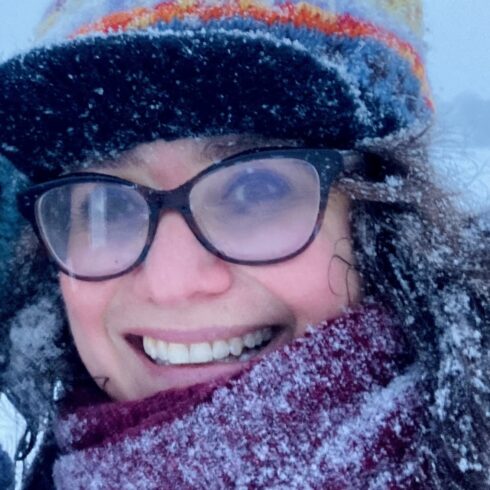– Andrea Butcher –
Senior Researcher in Sociology
University of Helsinki
I’m a social scientist and senior researcher in Sociology at the University of Helsinki and the Finnish Centre of Excellence in Antimicrobial Resistance Research, or FIMAR. Since 2017, I have worked in multidisciplinary research teams involved in global AMR research, closely collaborating with bioscience teams in Finland, West Africa, the UK and Bangladesh.
An anthropologist by training, my expertise lies broadly in ethnography and development studies, drawing inspiration from Science and Technology Studies. I began my research career with a PhD project at the University of Aberdeen, where I examined the intersection of religion, development and climate in Ladakh, North-West India. Here I traversed interesting cosmopolitics routes—examining the role that geomancy, local cosmology, and supernatural agency play in the politics of climate, development and wellbeing in the Himalayas. The interest in vernacular health and environmental ecologies that formed part of this work led to my current specialisation by way of global aquaculture, and a postdoctoral position at University of Exeter’s Geography department. Here, I worked on an ESRC funded international and multidisciplinary collaboration with British and Bangladeshi fisheries specialists, examining the socioeconomic drivers and risk factors of antibiotic use in Bangladeshi shrimp and prawn farming. In 2018, I joined the University of Helsinki’s Sociology department as postdoctoral researcher for multidisciplinary collaborations with Finnish and West African social and bioscience research teams, engaging in more broadly in studying social and productive life in relation AMR emergence and spread, before taking up my current position.
I approach AMR in the context of International Development, with a specific interest in the environmental dimensions of resistance emergence and spread. Drawing upon political ecology, visual methods and STS, I have looked at how industrial forms of livestock production and agriculture, rapid urbanisation, and poor institutional and material infrastructures for water and sanitation management open new pathways for AMR transmission between humans, non-human animals and the environment (One Health Approach). I continue also to be interested in vernacular microbes and the cosmopolitical, and am a member of the Centre for the Social Study of Microbes. I I have worked in anthropology, sociology, human geography and religious studies departments, and have field experience in the Indian Himalaya, Bangladesh and West Africa.
Further information on Andrea is available on her institutional profile.
 Share
Share






Commentary
The latest commentary on the use of antimicrobials in society.
Care-ful collaboration: reimagining ethnography in transnational global health...
In this AMIS Commentary, Alice Tompson presents reflections on the collaborative working of the Antimicrobials in Society research teams, based...
AMR Training for Social Scientists
In this Q&A, Karlijn Hofstraat and Danny de Vries tell us about their “SPECIAL-SOC AMR” curriculum, a fantastic learning resource...
AMIS Final Report
We are delighted to release our AMIS Final Report. The report summarises the key activities, findings and outputs from the...